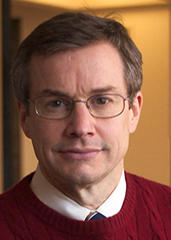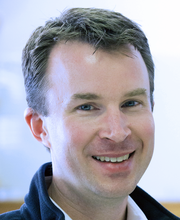Topics
- active learning (18)
- research assignments (6)
- libraries (1)
- literature-based learning (2)
- multimedia (5)
- museums (6)
- object learning (7)
- online learning (5)
- peer instruction (10)
- storytelling (2)
- learning management system (2)
- syllabus design (3)
- teaching empathy (3)
- teaching fellows (1)
- lecture (3)
- learning goals (8)
- assessment (6)
- data (3)
- backward design (3)
- blended approaches (12)
- case-based learning (8)
- classroom contracts (7)
- classrooms and space (3)
- collaborative learning (27)
- community events (1)
- course transformation (7)
- devices (3)
- learning by making (5)
- discussion (24)
- engaged scholarship (4)
- experiential learning (16)
- feedback (18)
- group work (8)
- guest speakers (7)
- interdisciplinary (6)
- leadership (3)
Send feedback
Subscribe
Copyright © 2024 The President and Fellows of Harvard College | Privacy | Accessibility | Digital Accessibility | Report Copyright Infringement

 Howell Jackson, James S. Reid Jr. Professor of Law, experiments with end-of-semester exams and writing assignments to create opportunities for meaningful, formative feedback through skills practice, reflection, and peer collaboration.
Howell Jackson, James S. Reid Jr. Professor of Law, experiments with end-of-semester exams and writing assignments to create opportunities for meaningful, formative feedback through skills practice, reflection, and peer collaboration.
 Jelani Nelson, Assistant Professor of Computer Science, assigns students real programming problems in his introductory algorithm courses, CS124 Data Structures and Algorithms and CS125 Algorithms & Complexity. Students write and test their coded solutions to practice problems via an open server on the
Jelani Nelson, Assistant Professor of Computer Science, assigns students real programming problems in his introductory algorithm courses, CS124 Data Structures and Algorithms and CS125 Algorithms & Complexity. Students write and test their coded solutions to practice problems via an open server on the 
 Logan McCarty, Director of Physical Sciences Education, and Louis Deslauriers, Director of Science Teaching and Learning, adopted an active pedagogy for a large introductory physics course and saw significant gains in student learning and attitudes.
Logan McCarty, Director of Physical Sciences Education, and Louis Deslauriers, Director of Science Teaching and Learning, adopted an active pedagogy for a large introductory physics course and saw significant gains in student learning and attitudes.